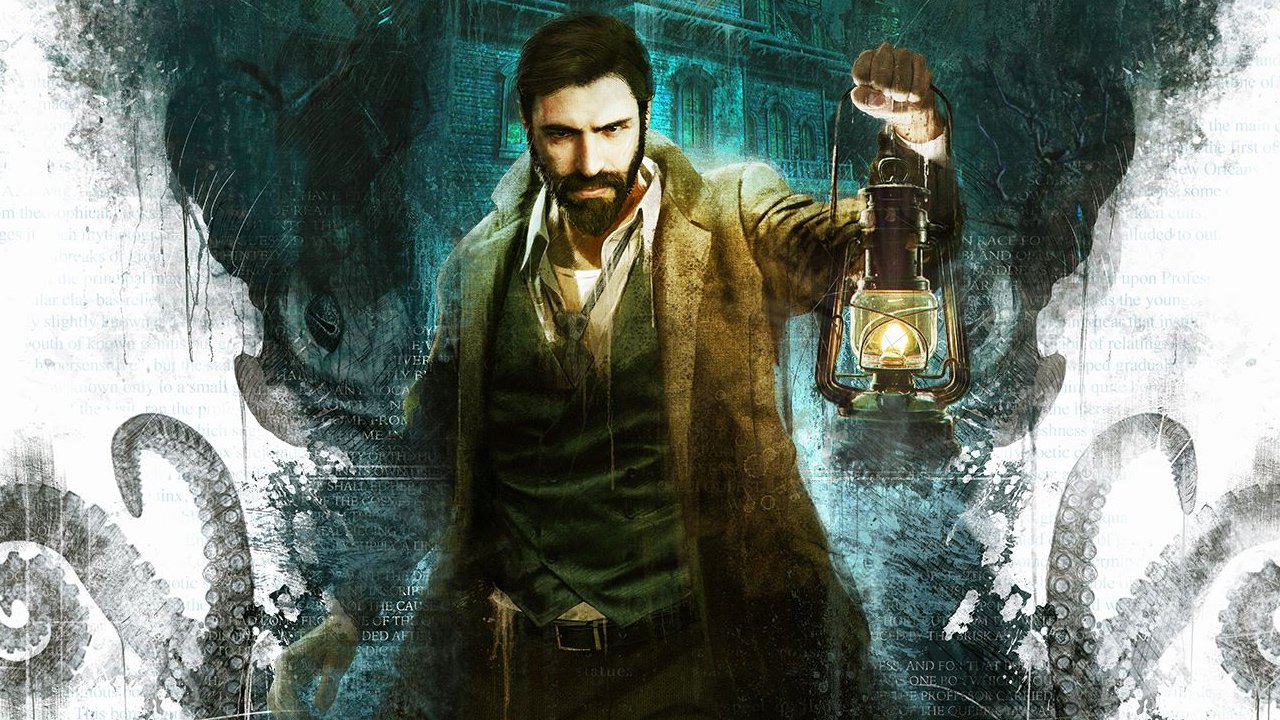
Call of Cthulhu
Cyanide Studio/Focus Home Interactive
There are an entire plethora of video game adaptations bases on the works of H.P. Lovecraft; a wealth of material that is most often misrepresented because game developers don’t quite seem to get what his mythos were all about. Lovecraft, like his contemporaries (such as Sir Arthur Conan Doyle and Edgar Allen Poe) were tellers of weird fiction. Weird fiction isn’t necessarily horror but can contain elements of horror, as well as fantasy, science fiction, psychological thrillers, and adventure.
People just don’t seem to get that.

Instead, the try to shoehorn each of Lovecraft’s works into a fundamentally horror box, which is clearly reductive and tends to shear away much of the nuance that makes the famous author’s works so unique. I’ve seen this happen over and over and over again in the digital realm—the same thing always happens. A game based on the works of Lovecraft is announced; horror fans get all giddy with anticipation; the said game comes out and reviewers say it isn’t scary enough or didn’t contain the amount of horror that they’d expected; and then the game fades off into obscurity. Rinse, repeat.
Cyanide Studio recently decided to take a stab at rendering Lovecraft’s most famous short story, Call of Cthulhu. However, their rendition is much more based off of the ever popular pencil-and-paper role-playing game, Call of Cthulhu, published by Chaosium (which is in its seventh edition by the way).
What this means is that the main protagonist of the game is one, Edward Pierce, a down-on-his-luck private investigator who also happens to be a full-blown alcoholic. For some odd reason the developers seemed to think that Pierce’s background was irrelevant because nothing of note is every explained about his past.

Perhaps they figured that since Pierce is such a familiar character within the tabletop game, everyone should be familiar with him. In any event, it would have been nice to have at least a little bit of exposition in order to flesh him out to newcomers to the franchise, as well as those not knowledgeable of the RPG.
Call of Cthulhu opens with Pierce feeling sorry for himself when a mysterious figure knocks on his office door. The person at the door is a wealthy businessman who is filled with heartbreak since his daughter has recently died. The elder gentleman suspects foul play since not only did his daughter die in a strange fire, but her husband and their son perished as well and the circumstances surrounding the incident seemed rather contrived.
Since everyone else considers the grieving father a nutcase, Pierce takes on the case, which involves determining what exactly happened to the daughter and her family. This first takes him to the old coastal town of Darkwater (talk about a corny name) in order to try to gather some clues about the deaths. Along the way, Pierce must piece together fragments of a sordid mystery which has overtones of cosmic proportions.

Although the game’s story is rather hackneyed and touches on all of the usual tropes that you’d expect of a game of this sort, the writing is pretty decent. The voice acting is pretty good as well and moves the story along at a brisk pace, which in its entirety lasts about a good ten to twelve hours of total play time. It also has an interesting cast of characters and the mysteries that you stumble across and eventually solve, should give you a satisfying sense of accomplishment as you conclude the game.
Visually, Call of Cthulhu has its ups and downs. The environments are very well done—with excellent use of murky colors and an attention to detail that makes everything look lived-in and appropriate to the setting. However, when it comes to the characters themselves there is a lot to be desired.
The various character designs are well thought out but their actual execution in-game is pretty wonky. For instance, whenever you engage in dialogue with any of the NPCs you’ll notice that their mouths are out of sync with what they’re saying. Their animations also look stiff and robotic as if you’re beholding a living mannequin instead of a real live human being.

Another thing that was rather off-putting was the fact that there wasn’t much in the way of exploration within many of the game’s environs. For example, when I first arrived at the creepy town of Darkwater I became excited at the prospect of visiting its various buildings and nosing around its different nooks and crannies.
To my disappointment, once I touched down on Darkwater’s shores I quickly realized that I would not be able to explore the town at all. In this way, much of Call of Cthulhu’s environs seem much less like a role-playing game and more like an on-the-rails adventure game, only without much adventuring.

I consider Call of Cthulhu a decent adventure experience, albeit a short one for the $40 price of admission. I did enjoy its backstory, as well as its well-drawn environments. However, it felt patchy, as if some of its more interesting aspects had been left on the cutting room floor due to budgetary constraints.
SCORE: 70%
Call of Cthulhu features pretty decent graphics that make its adventure gameplay truly shine. However, you want to have a pretty beefy gaming PC or gaming laptop in order to play it at a decent framerate. So, you may just want to invest in a decent gaming rig:

Visit CyberpowerPC’s website to check out all of the other great deals as well!